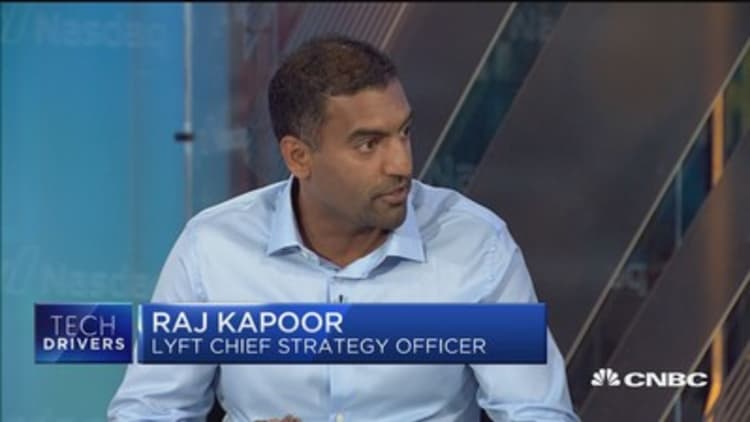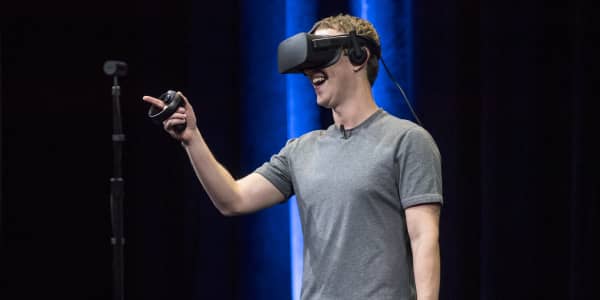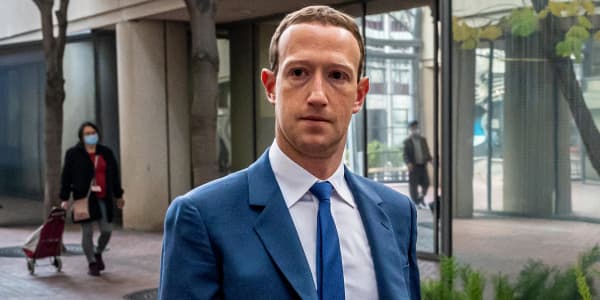
Ride-sharing company Lyft has announced plans to move deeper into self-driving technology — but that does not put the company at odds with its fleet of drivers, according to one top executive.
"We will always need drivers," Raj Kapoor, chief strategy officer at Lyft, told CNBC's "Squawk Box" on Monday. He also said that Lyft's big driver network is an advantage over other companies such as Tesla who are also working on self driving cars.
"What the consumer cares about the most is having a reliable experience, in addition to safety and that means that when I open up the app, I know that there's a car there in a couple minutes," Kapoor said. "For that kind of ubiquity, you need to have human drivers. We have over 700,000 drivers now. That's something that any other company would have to replicate instantly."
The ride-hailing start-up announced a new autonomous driving facility in Palo Alto, California, last week, expanding its previous partnership-based approach with Alphabet's Waymo to start-up nuTonomy to carmaker GM.
It will be years before an algorithm alone can navigate the busy streets of New York City, even with Lyft's expansive data sets about rider behavior.
But some analysts believe that jobs will be lost as autonomous vehicles become mainstream. When autonomous vehicle saturation peaks, U.S. drivers could see job losses at a rate of 25,000 a month, or 300,000 a year, according to a report from Goldman Sachs Economics Research.
That figure would aggravate an already problematic relationship between technology giants and the so-called gig economy. Drivers are not considered employees of Uber or Lyft, and thus miss out on benefits like healthcare and retirement savings.
But Kapoor said he doesn't "think drivers are going to be paid less — in any case."
"There are new opportunities that are going to be created for drivers. We're seeing a surge in demand for health care, elderly related assistance services that are there that require drivers. And you'll see whole new ways of transporting. You'll have cafe services in cars as well," Kapoor said.





